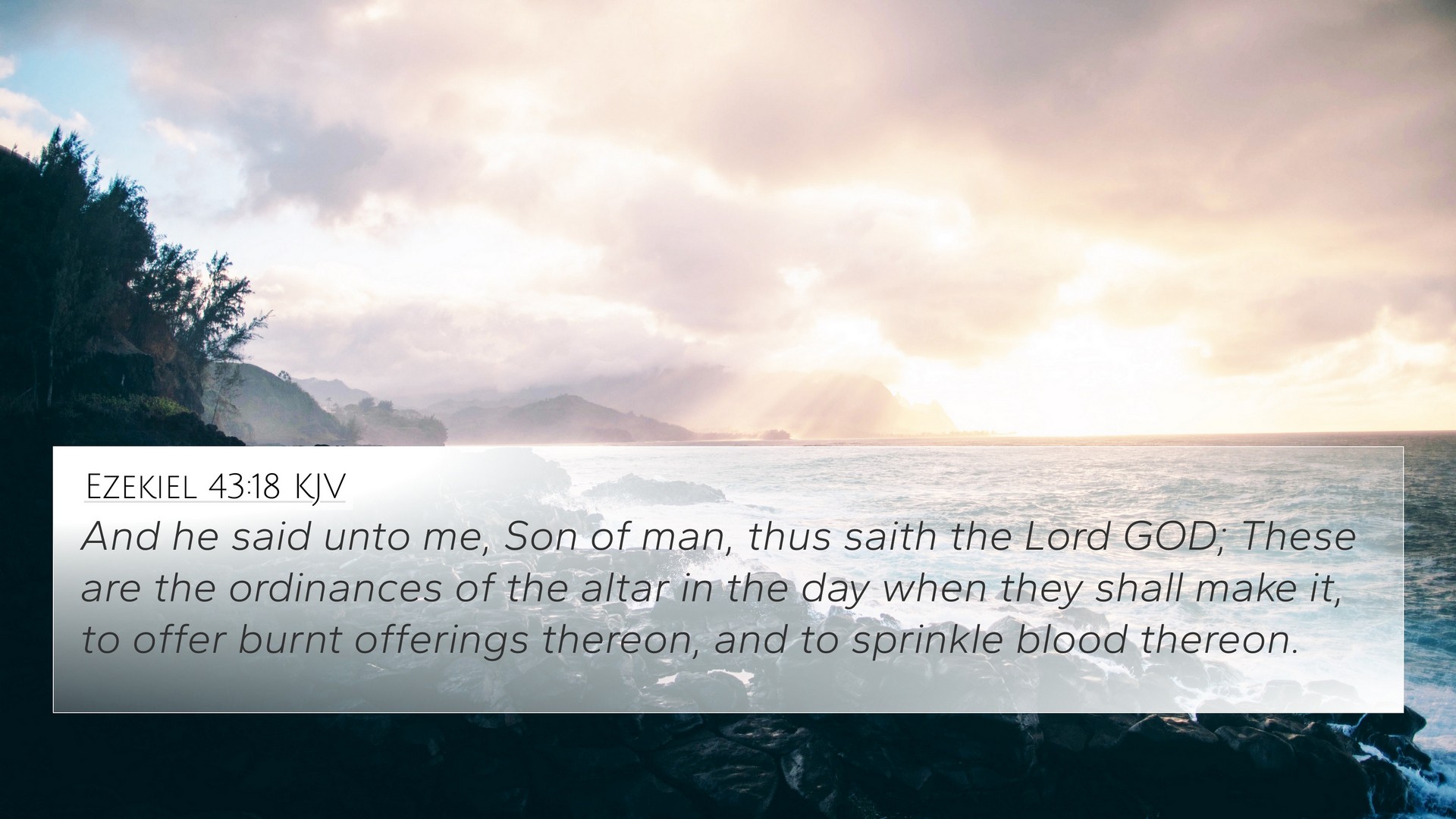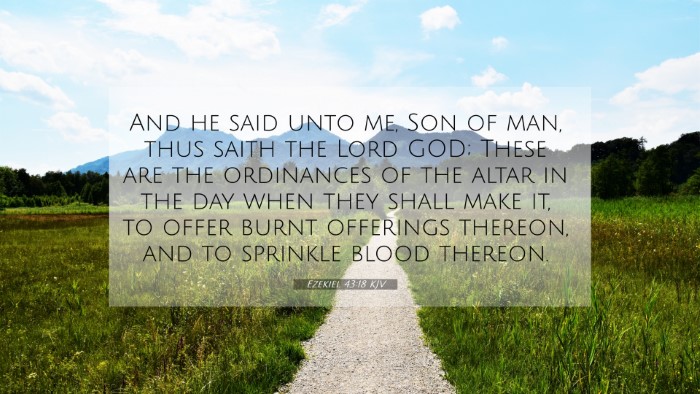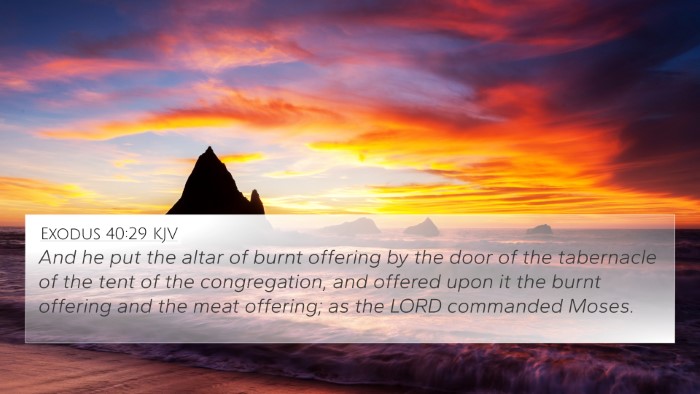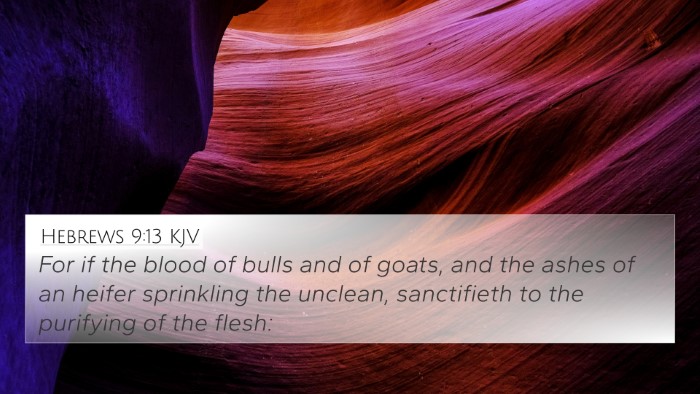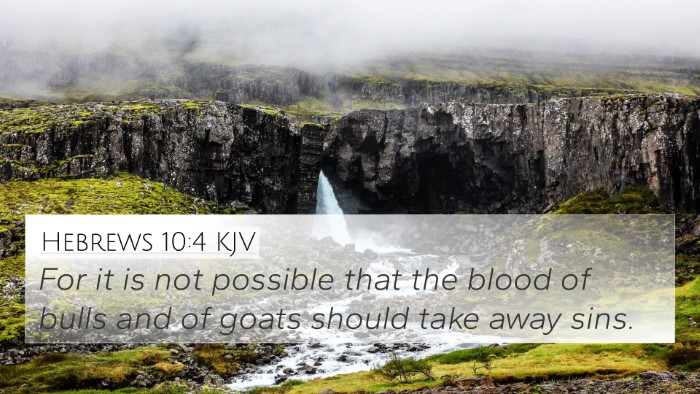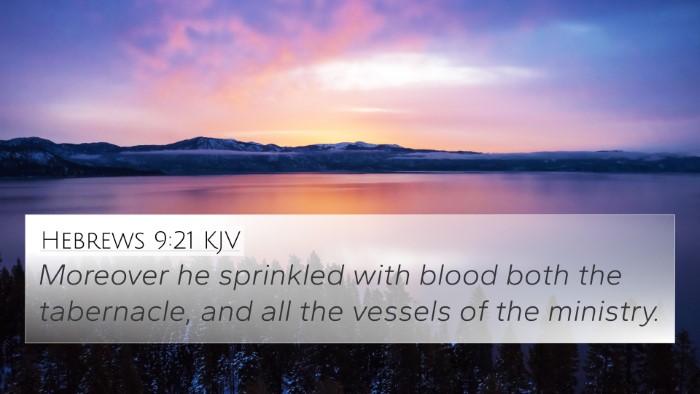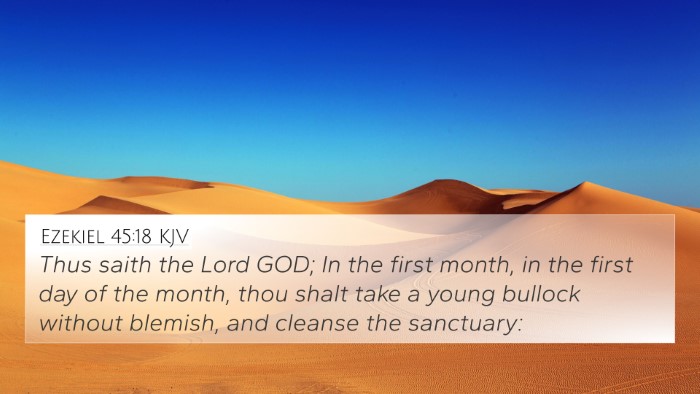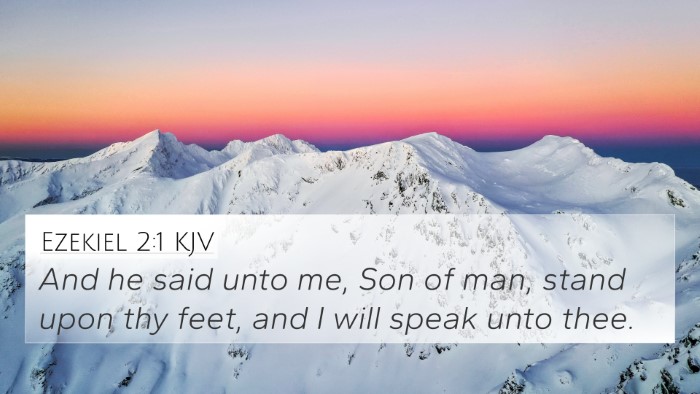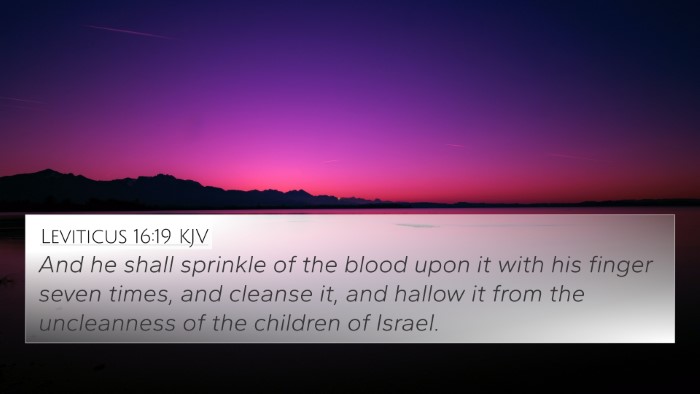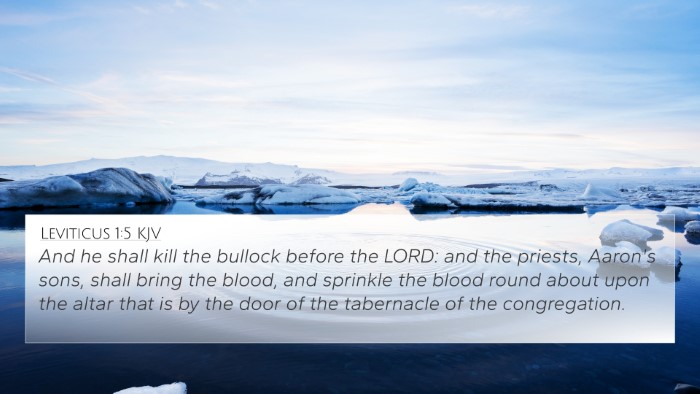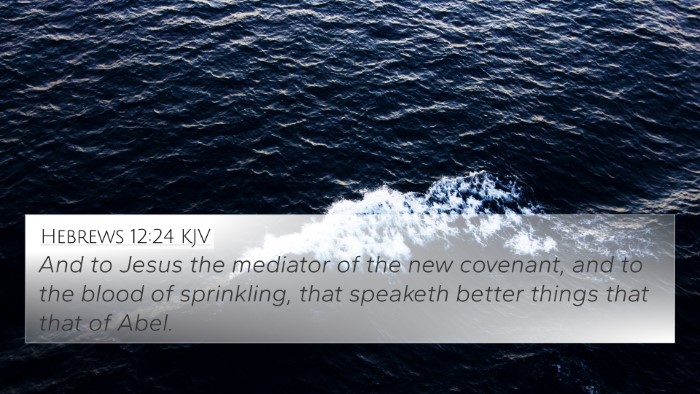Ezekiel 43:18 - Understanding the Divine Instructions
Ezekiel 43:18 states, "And he said unto me, Son of man, thus saith the Lord God; These are the ordinances of the altar in the day when they shall make it, to offer burnt offerings thereon, and to sprinkle blood thereon." This verse is a part of God's detailed directions regarding the construction and function of the altar in the future temple. The significance of this instruction is multifaceted and can be unpacked with insights drawn from various public domain commentaries.
Commentary Insights
-
Matthew Henry's Commentary:
Henry notes that God's precision in instructing Ezekiel about the altar demonstrates His commitment to proper worship. The ceremonial aspects emphasize the need for holiness and preparation when approaching God. Henry emphasizes that God is a God of order and has specific desires for how worship should be conducted.
-
Albert Barnes' Commentary:
Barnes observes that the mention of burnt offerings signifies the need for atonement and fellowship with God. He highlights that the altar is a place of sacrifice, which points to the deeper spiritual realities of approaching God through the blood of the sacrifice. This foreshadows the ultimate sacrifice in Christ.
-
Adam Clarke's Commentary:
Clarke provides insight into the symbolic significance of the altar. He explains that the blood sprinkling is essential in the ritualistic context, signifying the cleansing and acceptance of offerings. Clarke interprets this as a foreshadowing of the redemptive work of Christ, making it relevant in both the Old and New Testament context.
Thematic Connections in Scripture
Ezekiel 43:18 provides a foundation for understanding important themes that permeate the Bible concerning worship, sacrifice, and the holiness of God. Below are key thematic Bible verse connections:
-
Hebrews 9:22: "And almost all things are by the law purged with blood; and without shedding of blood is no remission."
This verse parallels Ezekiel's emphasis on blood and sacrifice, underscoring the necessity of atonement in the worship process.
-
Romans 12:1: "I beseech you therefore, brethren, by the mercies of God, that ye present your bodies a living sacrifice, holy, acceptable unto God, which is your reasonable service."
Paul’s exhortation resonates with the theme of offering and sacrifice, relating back to the principles established in the ordinances of the altar.
-
Leviticus 17:11: "For the life of the flesh is in the blood: and I have given it to you upon the altar to make an atonement for your souls."
This verse from Leviticus reaffirms the importance of blood in sacrificial worship, reflecting the ordinances set forth in Ezekiel.
-
1 Peter 2:5: "Ye also, as lively stones, are built up a spiritual house, an holy priesthood, to offer up spiritual sacrifices, acceptable to God by Jesus Christ."
This New Testament verse connects believers' identity as a holy priesthood to the ancient practices instituted at the altar.
-
Exodus 20:24: "An altar of earth thou shalt make unto me, and shalt sacrifice thereon thy burnt offerings, and thy peace offerings, thy sheep, and thine oxen."
The original instructions for altar construction highlight the continuity from the Exodus to Ezekiel, emphasizing God's desire for worship.
-
Matthew 5:23-24: "Therefore, if you are offering your gift at the altar and there remember that your brother has something against you, leave your gift there in front of the altar. First go and be reconciled to them; then come and offer your gift."
Jesus' teaching adds another layer to the understanding of offering and worship, stressing the importance of right relationships and hearts in the act of sacrifice.
-
Revelation 6:9: "And when he had opened the fifth seal, I saw under the altar the souls of them that were slain for the word of God, and for the testimony which they held."
This passage also invokes the imagery of the altar, showing a continuity through the scriptures regarding the ultimate sacrifice of believers’ lives in testimony and faith.
Conclusion
Ezekiel 43:18 serves as an important reminder of the seriousness of worship and the need for sacredness in approaching God. The connections drawn between this verse and others throughout the Bible enrich our understanding of not just the historical context but the theological implications as well. Through these comprehensive Bible cross-reference materials, believers can deepen their appreciation for the significance of sacrifice and holiness in their worship practices.
Tools for Bible Cross-Referencing
For those interested in exploring these connections further, various tools and resources can enhance your Bible study experience:
- Bible concordance for finding thematic connections.
- Bible cross-reference guide to assist with navigating related texts.
- Cross-reference Bible study techniques, including thematic studies.
- Identifying connections between the Old and New Testament.
Engagement with Scripture
Understanding Ezekiel 43:18 not only illuminates the practices of ancient Israelite worship but also invites contemporary believers to consider how these principles apply in their lives today. Engaging with scripture through cross-referencing offers a dynamic approach to study, ensuring that readers grasp the interconnectedness of God’s word.
